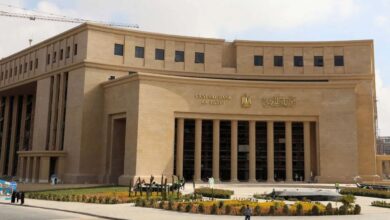Egyptian urban inflation inched higher in the year to December, but the pace of increase is unlikely to prompt the central bank to raise interest rates this month to curb price growth.
Urban consumer inflation edged up to 10.3 percent in the 12 months to December from 10.2 percent in November, Egypt's state statistics agency CAPMAS reported on its website on Monday.
Three analysts gave forecasts for urban inflation, the most closely watched indicator of prices, ranging from 10.1 percent to 11.7 percent. The average forecast was 11.06 percent.
John Sfakianakis, chief economist at Banque Saudi Fransi, said he expected the central bank to leave interest rates unchanged in January but saw a rate hike in the first half of 2011.
"If the situation continues in steady rises in inflationary pressures, then at some point towards the first half of the year the central bank has to take some monetary measures to control inflation."
However, some analysts say raising interest rates is not enough to curb food inflation, which remains in double digits.
"The measures by the central bank to raise interest rates will not have much of an impact on the main cause of inflation which is food. If they raise interest rates, food inflation is not going to fall," Sfakianakis said.
Prices of food and beverages, which account for 44 percent of the weighting of the basket Egypt uses to measure inflation, accelerated year-on-year to 17.2 percent in December from 17.1 percent in November.
Record high food prices could hit Egypt, a major food importer relying on food imports for at least 50 percent of domestic consumption, as global food prices are seen rising on erratic global weather patterns.
The United Nations' food agency (FAO) said last week that food prices hit a record high in December, topping 2008 levels when riots broke out in various countries.
Algeria's government said on Saturday that it would slash the cost of some staple foods to try to quell four days of rioting triggered by price rises that left two dead and wounded several hundred.
The central bank on Dec. 16 kept its key overnight interest rates steady, saying inflation was contained but that limited investment and concerns over the global recovery could weigh on the country's economy.
The bank held its overnight lending rate steady at 9.75 percent and the deposit rate at 8.25 percent, the 10th time it has done so since it stopped cutting rates in September 2009. It also left the discount rate unchanged at 8.5 percent.
Egypt's economy is estimated to have grown by an annualised 6 to 6.2 percent in the October to December quarter, the cabinet's spokesman said on Wednesday, heralding its best performance since the global downturn.
A Reuters poll of 12 economists predicted last month that GDP in the Arab world's most populous nation would grow 5.4 percent in the fiscal year that ends in June 2011, while the ruling National Democratic Party last month predicted growth of 6 percent.
The next policy meeting of the central bank's Monetary Policy Committee is scheduled for 27 Jan.




